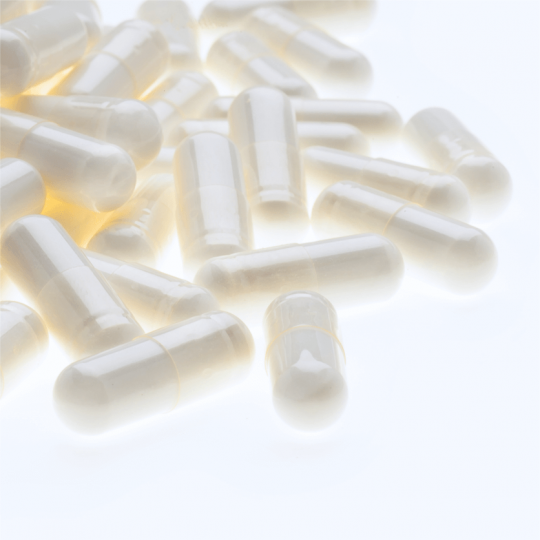 Add My Company
Add My Company
Stop diarrhoea naturally

What is diarrhoea?
Diarrhoea is an increase in the frequency of bowel movements or a decrease in the form of the stool (i.e. greater looseness and water content). It is usually a symptom of an underlying illness, infection or other condition or external factor (such as poor diet or stress).
Although changes in frequency of bowel movements and looseness of stools can vary independently of each other, changes often occur in both.
Healthy individuals have, on average, a maximum of three bowel movements per day. Therefore, “absolute diarrhoea” can be defined as any number of stools greater than three. On the other hand, what is referred to as “relative diarrhoea” is having more bowel movements than is usual for the individual in question.
What can cause diarrhoea?
Diarrhoea is an unpleasant condition, which can have any number of causes as it is usually triggered by an external factor, such as an underlying medical condition. Most cases of diarrhoea will resolve on their own. However, in some cases, where the diarrhoea is prolonged, it can lead to dehydration and/or be a sign of a more serious problem.
As mentioned above, with diarrhoea, stools are usually looser, irrespective of whether the frequency of bowel movements has increased. During normal digestion, food is kept liquid by the secretion of large amounts of water by the stomach, upper small intestine, pancreas and gallbladder. Food that is not digested reaches the lower small intestine and the colon in liquid form. The lower small intestine and particularly the colon absorb the water, turning the undigested food into relatively solid stool form.
Increased amounts of water in stool can occur if the stomach and/or small intestine secretes too much fluid, the distal small intestine and colon do not absorb enough water, or the undigested, liquid food passes too quickly through the small intestine and colon for enough water to be removed. Of course, more than one of these abnormal processes may occur at the same time.
There are 2 main categories of diarrhoea:
acute, which is temporary diarrhoea; and
chronic, where the diarrhoea lasts longer than 4 weeks.
The two happen for different reasons, but both work the same way.
Diet or emotional upset (mild acute diarrhoea)
Attacks of mild diarrhoea can often be linked to a simple dietary cause, such as eating rich food or by consuming an overabundance of roughage. Emotional upset can also affect bowel movements.
This type of diarrhoea is relatively common, usually only lasts 1 – 2 days and goes away on its own without treatment.
Infection (serious acute diarrhoea) and travel abroad
Acute diarrhoea, on the other hand, may be caused by viral, bacterial or parasitic infection (including food poisoning, unclean water and by certain respiratory infections) and may require action, particularly to avoid de-hydration and address electrolyte imbalances where the diarrhoea persists for a number of days.
Some viruses, bacteria and parasites cause increased secretion of fluid, either by invading and inflaming the lining of the small intestine (inflammation stimulates the lining to secrete fluid) or by producing toxins that also stimulate the lining to secrete fluid but without causing inflammation. Inflammation of the small intestine and/or colon from bacteria or from ileitis/colitis can increase the rapidity with which food passes through the intestines, reducing the time that is available for absorbing water.
People who visit foreign countries are at risk of, what is generally referred to as, “travellers’ diarrhoea”. This is caused by eating food or drinking water contaminated by bacteria, viruses or parasites. Travellers’ diarrhoea is a particular problem for people visiting developing countries.
Functional digestive disorders and inflammatory bowel diseases (IBDs)
Chronic diarrhoea is often related to functional disorders, such as Irritable Bowel Syndrome (IBS) or inflammatory bowel disease (IBD), such as Crohn’s disease and ulcerative colitis.
The word “chronic” is used to describe conditions that tend to worsen over time, come and go and persist for the long-term. diarrhoea that lasts longer than four weeks may be considered chronic.
How to stop diarrhoea
Re-hydration
In most cases, where only mild diarrhoea is experienced for a short period (i.e. 1 – 2 days), replacing lost fluid to prevent dehydration is the only treatment necessary.
Medicine and antibiotics
Medicines that stop diarrhoea may be helpful in some cases, but they are not generally recommended for people whose diarrhoea is from a bacterial infection or parasite. This is because stopping the diarrhoea may actually serve to “trap” the organism in the intestines, thereby prolonging the problem. What’s more, if you have inflammation of the gut, taking medication can aggravate that. Doctor discretion is, of course, advised.
Viral causes are either treated with medication or left to run their course, depending on the severity and type of the bug. In most cases, replacing lost fluid to prevent dehydration is the only treatment necessary.
It is also worth noting that diarrhoea can also be caused by use of antibiotics that are taken for infections. These can often have the unintended consequence of altering the balance of bowel flora / bacteria living inside your gastrointestinal system. Once the delicate balance of good and bad bacteria has been disrupted, it can lead to other imbalances in the gastrointestinal system and symptoms like diarrhoea can begin to appear.
In these circumstances, many people find it helpful to supplement their diet with high-strength, multi-strain probiotic supplements, to help to restore the balance of bacteria in the gut.
For more information on Stop diarrhoea naturally talk to Resilient Health
